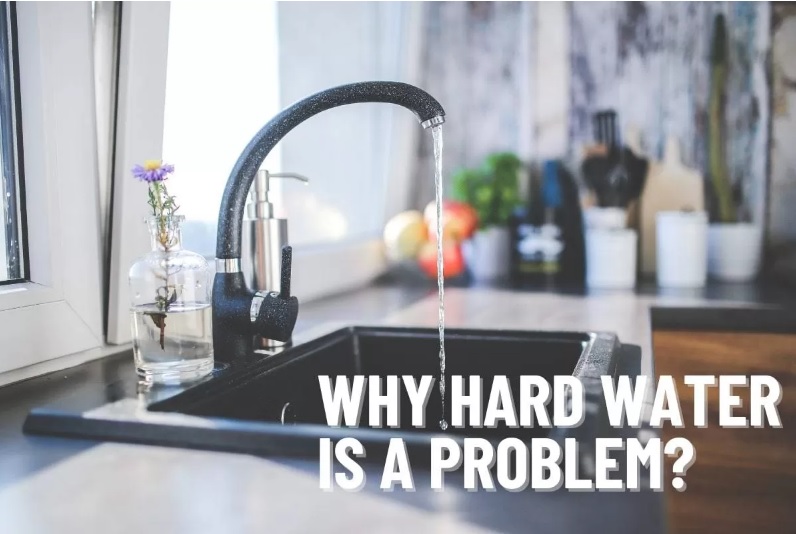When it comes to managing hard water problems, few solutions are as popular as the salt-based water softener system. These systems have been a reliable choice for homeowners for decades, but along with their popularity comes a fair share of myths and misconceptions. Unfortunately, many of these myths prevent people from fully understanding the true benefits of owning a salt-based water softener system or lead them toward misinformation that overshadows their effectiveness. In this blog post, we’ll set the record straight by debunking the most common myths surrounding salt-based water softener systems. Whether you’re considering installing one in your home or you already own one and want to ensure you’re getting the most out of it, this guide will provide you with the facts you need.
Myth #1: Salt-Based Water Softener Systems Make Water Salty
One of the most pervasive myths about salt-based water softener systems is that they make your water taste salty. This misconception likely arises from the fact that these systems use salt during the regeneration process. However, the reality is far from this myth. Here’s how it works: A salt-based water softener system uses ion exchange technology to remove hardness-causing minerals, such as calcium and magnesium, from your water. During this process, sodium ions replace these hard minerals. While sodium is added to the water, it’s not the same as “salt” in the sense you’d taste it. The sodium levels introduced are minimal—so low that most people wouldn’t even notice a difference in taste.To put it into perspective, the amount of sodium in softened water is significantly less than what you’d find in a slice of bread or a glass of milk. For most people, the sodium content is negligible and won’t affect the taste or quality of the water for drinking or cooking.
Myth #2: Salt-Based Water Softener Systems Are Bad for the Environment
Another common myth is that salt-based water softener systems are harmful to the environment. This concern stems from the fact that these systems discharge brine (a mixture of water and salt) during the regeneration process. Critics often argue that this brine can negatively impact local water supplies or aquatic ecosystems.While it’s true that the brine discharge needs to be managed responsibly, modern salt-based water softener systems have become increasingly efficient. Many municipalities have guidelines in place to ensure proper disposal, and new technologies are helping to minimize the environmental impact. Additionally, in areas where brine discharge is restricted, alternative solutions like potassium chloride can be used instead of salt.It’s worth noting that hard water itself can have environmental drawbacks. Hard water leads to increased soap and detergent use, which can result in more chemicals being washed into the environment. By reducing water hardness, salt-based water softener systems can help households use fewer cleaning products, which is an eco-friendly benefit often overlooked.
Myth #3: Softened Water Is Unhealthy to Drink
Some people worry that softened water is unsafe or unhealthy because of the added sodium content. While it’s true that softened water contains more sodium than hard water, the levels are minimal and generally not a cause for concern for most individuals. For context, the U.S. Environmental Protection Agency (EPA) has set a guideline of 20 milligrams of sodium per liter of water for people on very strict sodium-restricted diets. The amount of sodium in softened water depends on the initial hardness of the water, but even in areas with extremely hard water, the sodium levels in softened water are usually well below this limit .For those who are concerned about sodium intake, there are simple solutions. You can install a reverse osmosis (RO) system alongside your salt-based water softener system to remove sodium from drinking water. This way, you get the benefits of softened water throughout your home while still enjoying sodium-free water for drinking and cooking.
Myth #4: Salt-Based Water Softener Systems Waste Water
It’s often claimed that salt-based water softener systems waste a significant amount of water during the regeneration process. While it’s true that these systems use water to clean and recharge the resin tank, the amount of water used is not as excessive as some might think. Modern salt-based water softener systems are designed with efficiency in mind. Many models feature advanced regeneration technology that only cleans the resin when necessary, minimizing water usage. Additionally, newer systems allow homeowners to customize regeneration settings to further optimize water consumption based on their household’s needs. When compared to the costs and environmental impact of dealing with hard water—such as damaged appliances, increased energy bills, and higher soap usage—the water used by a salt-based water softener system is a small price to pay for the long-term benefits.
Myth #5: Salt-Based Water Softener Systems Are Expensive to Maintain
Another misconception is that owning a salt-based water softener system comes with high maintenance costs. While these systems do require some upkeep, such as adding salt to the brine tank and occasional cleaning, the overall cost of maintenance is relatively low.The main ongoing expense is purchasing the salt, which is typically affordable and only needs to be refilled every few months, depending on your water usage and the size of your system. Additionally, most systems are built to last for years with minimal intervention, and any repairs or replacements are infrequent when the system is properly maintained.When you consider the savings that come from reduced appliance wear and tear, lower energy bills, and decreased soap and detergent usage, the investment in a salt-based water softener system often pays for itself over time.
Myth #6: Salt-Based Water Softener Systems Remove All Minerals, Including Beneficial Ones
Another popular myth is that salt-based water softener systems strip water of all minerals, including those that are beneficial for health, such as calcium and magnesium. While it’s true that these systems remove hardness minerals, it’s important to understand the context. The calcium and magnesium found in hard water are inorganic minerals that the human body struggles to absorb effectively. Most of the minerals we need for good health come from food, not water. Hard water minerals can contribute to scale buildup in pipes and appliances, leading to costly repairs and inefficiencies. If you’re concerned about losing beneficial minerals, you can rest assured that your body gets more than enough from a healthy diet. Additionally, if you prefer, you can install a remineralization filter to add specific minerals back into your drinking water without the drawbacks of hard water.
Myth #7: Salt-Based Water Softener Systems Are Outdated and Inefficient
With the rise of alternative water treatment options, some people assume that salt-based water softener systems are an outdated technology. However, this couldn’t be further from the truth. These systems remain one of the most effective and reliable solutions for addressing hard water problems.While alternatives like salt-free water conditioners are available, it’s important to note that these systems don’t actually soften water. Instead, they work by preventing scale buildup, but they don’t remove hardness minerals. For households dealing with severe hard water, a salt-based water softener system is still the gold standard for achieving true water softening.Modern salt-based water softener systems are more efficient than ever before, with features like smart controls, advanced regeneration cycles, and improved resin technology. These advancements ensure that homeowners get maximum performance with minimal waste and energy use.
Conclusion: Separating Fact from Fiction
There’s no denying that myths about salt-based water softener systems can be confusing, especially for those who are new to water treatment solutions. However, by separating fact from fiction, it’s clear that these systems offer numerous benefits for homeowners dealing with hard water. From preventing scale buildup and extending the lifespan of appliances to improving water quality and reducing cleaning product use, a salt-based water softener system remains a smart investment for many households. By understanding the truth behind these common myths, you can make an informed decision and enjoy the long-term advantages of softened water. If you’re considering a salt-based water softener system for your home, be sure to consult with a professional to determine the best option for your needs. With proper installation and maintenance, you’ll experience the many benefits of softened water without falling victim to misconceptions.




